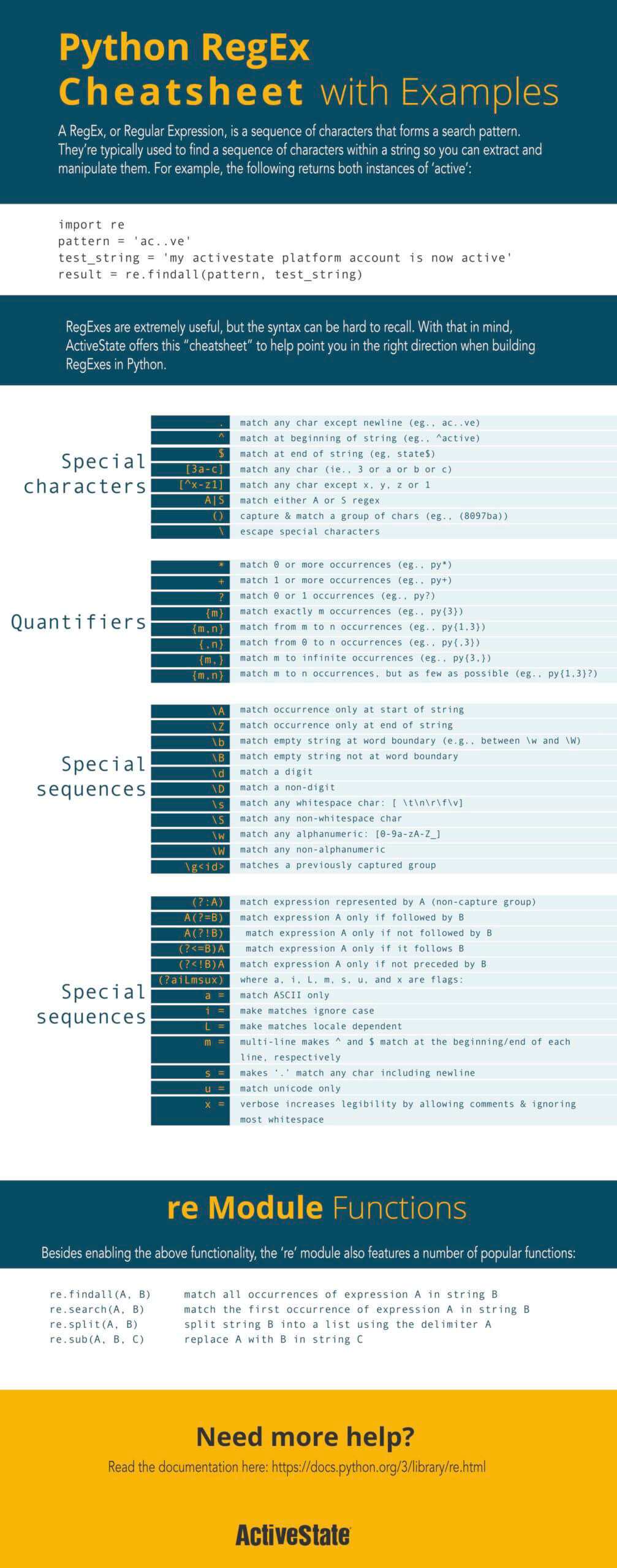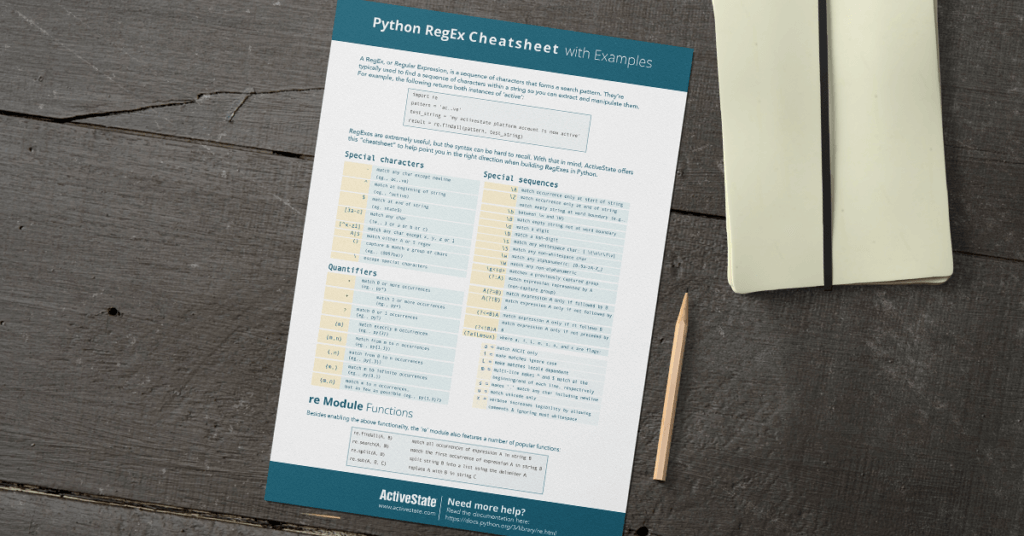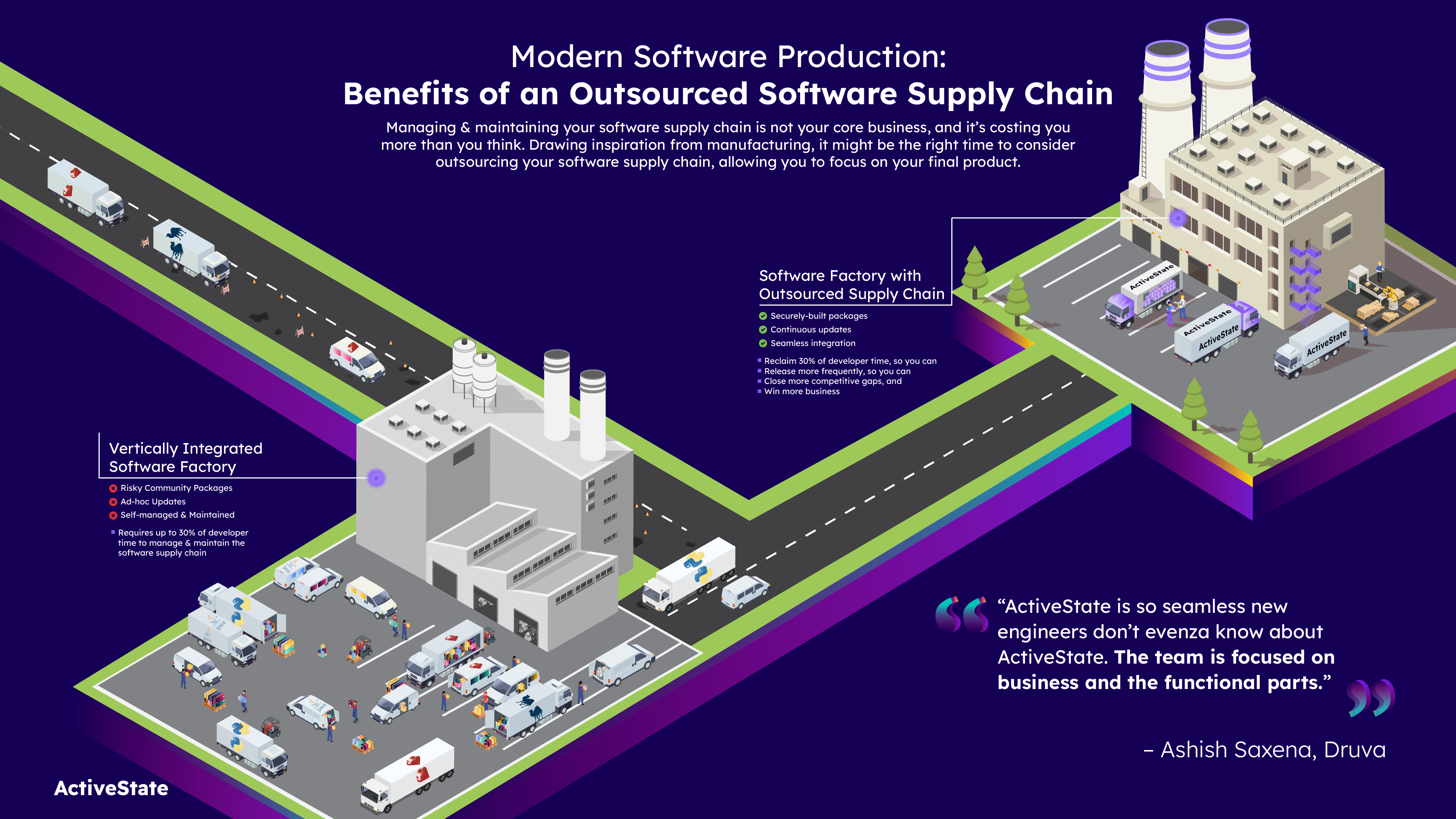Python RegEx Cheatsheet – Free Download
RegExes are extremely useful, but the syntax can be hard to recall. Check out our “Python Regular Expressions Cheatsheet” to help point you in the right direction when building RegExes in Python.
Scroll further to read about Komodo IDE’s Rx Toolkit. It can be your one-stop shop for understanding, writing, and working with regular expressions in real-time.
Download the Python Regular Expressions cheatsheet as a pdf or pin the infographic version shared below!

For more info, check out our primer for those completely new to regular expressions.
Working With Regexes
Even if you are already a regex wizard, juggling between the different regex implementations between programming languages can be tricky. Fortunately, ActiveState’s Command Line Tool has an Rx Toolkit that supports Perl, Python, PHP, Ruby, JavaScript, and Tcl regex syntaxes. Write one regex, test for all languages right from Komodo IDE! Just click on the little icon to the right of the “Regular Expression” input box to switch between implementations.
Komodo IDE is a great product. My favourite feature is the regex generator/tester. It’s saved me heaps of time and aggravation when coming up with complicated regular expressions to get through weblogs and the like.
~ Ben Maddock, Web Administrator (UniSAnet), Flexible Learning Centre, University of South Australia
Next Reads:



